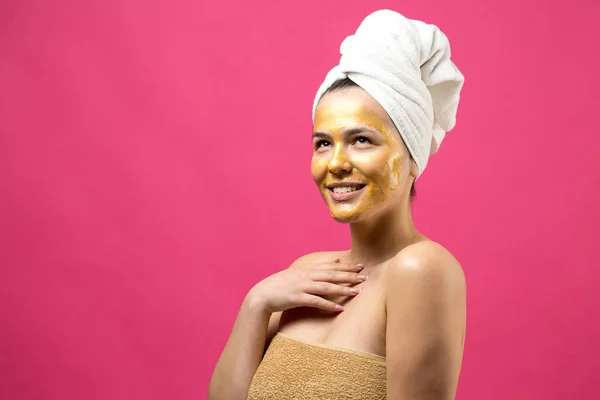
by genesis | Mar 15, 2025 | New Zealand Manuka Honey
UMF, MGO, KFactor, and More: Decoding Mānuka Honey Grading Systems
Introduction
When shopping for premium Mānuka honey, you might find yourself puzzled by labels: one jar says “UMF 20+,” another says “MGO 829+”, and yet another shows “KFactor 16.” What do these terms mean, and how can you be sure you’re choosing the right honey? In this guide, we simplify the various Mānuka honey grading systems so you can shop confidently.
UMF (Unique Mānuka Factor): The Gold Standard
Developed in New Zealand, UMF is a comprehensive quality grading system created by the Unique Mānuka Factor Honey Association (UMFHA). It measures three signature compounds:
- MGO (Methylglyoxal): The primary antibacterial component.
- DHA (Dihydroxyacetone): A precursor to MGO.
- Leptosperin: A chemical marker proving genuine Mānuka honey.
The UMF rating typically ranges from 5+ to 25+, with higher numbers indicating greater antibacterial potency:
- UMF 5+ (MGO 83): Entry-level, good for general daily use.
- UMF 10+ (MGO 263): Suitable for moderate health benefits.
- UMF 15+ (MGO 514): Great for therapeutic uses.
- UMF 20+ (MGO 829): Premium grade, exceptional antibacterial properties.
Only licensed producers from New Zealand can legally use the UMF logo.
MGO Rating: Simple and Direct
The MGO rating measures the precise concentration of methylglyoxal—the main antibacterial compound—in milligrams per kilogram (mg/kg). Typical MGO ratings include:
- MGO 100+ (everyday use)
- MGO 400+ (high antibacterial strength)
- MGO 700+ (very potent, like Genesis Honey Co.’s premium range)
Pros:
- Easy to understand.
- Direct correlation to antibacterial activity.
Cons:
- Doesn’t measure authenticity markers like leptosperin.
- Potential risk of synthetic MGO adulteration in unregulated products.
KFactor: A Measure of Purity, Not Potency
Introduced by Wedderspoon (a popular Canadian brand), the KFactor grading system measures purity by counting pollen and ensuring monofloral sourcing from Mānuka flowers. Typical ratings include KFactor 12, 16, or 22.
Pros:
- Guarantees honey is predominantly sourced from Mānuka flowers.
Cons:
- Doesn’t specifically indicate antibacterial potency.
- Less transparency regarding therapeutic benefits compared to UMF/MGO.
Other Grading Systems: MGS, Bioactive, and “Active” Ratings
- MGS (Mānuka Gold Standard): Similar to UMF, used by some producers primarily outside New Zealand, testing key active compounds.
- Bioactive or Active Ratings: Older labeling often indicating overall honey activity, which may include peroxide (less stable, less specific).
Always check labels carefully—“active” doesn’t necessarily mean high MGO or UMF.
Why Authenticity Matters
Due to the global popularity of Mānuka honey, fraudulent and diluted honeys flood the market. Authentic grading systems like UMF and certified MGO ratings ensure you’re getting genuine, pure, medicinal-quality honey.
Always look for:
- Official UMF or verified MGO ratings.
- Independent lab testing confirmation.
- Clear, traceable labeling from reputable brands.
Frequently Asked Questions
What’s the difference between UMF and MGO?
UMF measures several compounds including MGO, while MGO is specifically the concentration of methylglyoxal.
Is UMF 10+ the same as MGO 263+?
Approximately, yes. UMF 10+ equals roughly MGO 263 mg/kg.
What does UMF 20+ indicate?
It means the honey has very high antibacterial activity with at least 829 mg/kg of MGO.
Is UMF better than KFactor?
UMF provides clearer evidence of medicinal quality and antibacterial strength. KFactor focuses on purity but not potency.
How to Choose the Best Honey
- For Medicinal or Therapeutic Uses: Opt for UMF 15+ (MGO 514+) or higher.
- For Daily Wellness: UMF 5+ to UMF 10+ (MGO 83+ to 263+) works well.
- For Culinary Delight: Choose honey based on flavor rather than solely on high grading.
Always buy from reputable companies clearly stating testing credentials on their labels.
Why Genesis Honey Co.?
At Genesis Honey Co., we take grading seriously. Our 700+ MGO honey is independently lab-tested to ensure purity, potency, and authenticity. While our honey is Australian, our stringent testing aligns with international standards, delivering therapeutic-grade honey you can trust.
Conclusion
When choosing Mānuka honey, understanding the grading systems—UMF, MGO, KFactor, and beyond—is key. Now equipped with this knowledge, you can confidently select authentic, premium-quality honey. At Genesis Honey Co., transparency and quality come first, ensuring your investment in health is truly sweet.
Ready to experience genuine Mānuka honey? Explore Genesis Honey Co.’s range today!

by genesis | Mar 15, 2025 | Manuka Honey NZ
With antibiotic-resistant infections rising globally, natural alternatives like Genesis Honey Co.’s 700+ MGO Mānuka honey are increasingly valued for their powerful antibacterial properties. Often called ‘nature’s antibiotic,’ Mānuka honey has garnered attention from researchers and healthcare professionals alike for its unique antimicrobial abilities.
The Science Behind Mānuka Honey’s Antibiotic Properties
Mānuka honey’s standout antibacterial effects come from its high levels of methylglyoxal (MGO), a compound proven effective against many bacterial strains. Unlike regular honey, Mānuka honey exhibits powerful non-peroxide antibacterial activity, allowing it to combat antibiotic-resistant bacteria, including MRSA and certain superbugs, as supported by numerous scientific studies.
Topical Uses: Wound Care and Skin Health
Applying Mānuka honey topically has become increasingly common for minor wounds, burns, and skin infections. Hospitals worldwide have adopted medical-grade Mānuka honey dressings to aid healing and prevent infection. At home, applying a thin layer of high-quality Mānuka honey on minor cuts, scrapes, or acne spots can effectively reduce the risk of infection and accelerate healing.
Internal Uses: Everyday Wellness
- Sore Throat and Cough Relief: A teaspoon of Mānuka honey soothes throat irritation and reduces coughing naturally, offering quick symptomatic relief.
- Digestive Health: Incorporating Mānuka honey daily can help balance gut flora, soothe minor digestive inflammation, and even inhibit harmful bacteria like H. pylori.
- Oral Hygiene: Its antibacterial properties make Mānuka honey effective in oral hygiene routines, potentially reducing plaque-forming bacteria and soothing minor mouth ulcers.
Safe Usage and Precautions
- Do Not Replace Prescribed Antibiotics: For severe or serious infections, always follow your healthcare provider’s recommendations.
- Moderation: Typically, 1-2 teaspoons per day is adequate for general wellness.
- Infant Caution: Avoid honey for children under one year old due to the risk of botulism.
- Sugar Content: Monitor intake, particularly if managing diabetes or other blood sugar conditions.
Frequently Asked Questions
Can Mānuka honey treat infections?
Mānuka honey can effectively manage minor topical infections and support internal health. However, it should complement rather than replace traditional medical treatments for serious infections.
How do you apply Mānuka honey to wounds?
Clean the wound first, apply a thin layer of medical-grade honey, and cover with a sterile dressing. Replace daily until healed.
What strength of Mānuka honey is medicinal?
700+ MGO (UMF 18+) provides powerful antibacterial benefits suitable for both topical and internal health.
Does heat affect Mānuka honey’s antibacterial properties?
Yes, excessive heat can reduce some beneficial enzymes, although MGO itself is relatively stable. Avoid boiling; instead, use it at moderate or cool temperatures.
Why Choose Genesis Honey Co.?
Not all Mānuka honey is created equal. Genesis Honey Co. guarantees purity and potency through rigorous testing, ensuring our 700+ MGO honey delivers reliable antibacterial and health-promoting benefits you expect.
Conclusion
Integrating Mānuka honey into your daily life offers impressive health benefits with minimal risk. Whether it’s wound care, gut wellness, or immunity support, high-quality Mānuka honey is an invaluable natural addition to your health routine.
Experience the antibiotic power of Genesis Honey Co.’s 700+ MGO Mānuka Honey—Shop Now!

by genesis | Mar 15, 2025 | Mānuka Honey Skin Health, New Zealand Manuka Honey
From Kourtney Kardashian’s pantry to luxury skincare brands like Kiehl’s, Mānuka honey has become the skincare world’s hero ingredient. Offering an extraordinary trifecta of hydration, healing, and anti-aging benefits, Genesis Honey Co.’s 700+ MGO Mānuka honey elevates natural skincare routines to luxury status.
Deep Hydration & Moisture Retention
Mānuka honey is an exceptional natural humectant, meaning it draws moisture deep into the skin. Its rich, thick texture forms a protective, nourishing layer that keeps skin supple and hydrated. While hyaluronic acid might excel purely in moisture-binding, Mānuka honey offers multifaceted skincare benefits, combining hydration with powerful nutrients and healing properties.
Antibacterial & Acne Care
Mānuka honey’s antibacterial properties make it highly effective at clearing acne-prone skin. Regular application helps reduce acne-causing bacteria, preventing future breakouts and calming inflammation and redness. Popular skincare forums and enthusiasts frequently recommend Mānuka honey for stubborn acne due to its gentle yet potent effects.
Anti-Aging Antioxidants
Packed with phenolic acids and flavonoids, Mānuka honey provides robust antioxidant protection against harmful free radicals caused by UV rays and pollution. These antioxidants delay wrinkle formation and support the skin’s barrier function, helping maintain youthful and resilient skin. Regular use can visibly slow the signs of aging.
Healing and Soothing
Mānuka honey’s potent healing and anti-inflammatory effects soothe various skin concerns, including eczema, psoriasis, rosacea, and sunburn. It calms irritation and supports faster healing by reinforcing the skin’s natural barrier. Additionally, it can help manage conditions like dandruff and seborrheic dermatitis, highlighting its remarkable versatility.
How to Incorporate Mānuka Honey into Your Routine
- Gentle Cleanser: Massage a pea-sized amount onto damp skin, then rinse for a non-drying cleanse.
- Face Mask: Apply a thin layer for 10 minutes once or twice weekly to maintain a healthy glow.
- Spot Treatment: Dab directly onto pimples or dry patches overnight for targeted relief.
- Quality Products: If DIY feels messy, choose skincare products clearly labeled with UMF/MGO ratings for genuine potency.
Mānuka Honey vs Other Natural Ingredients
- Tea Tree Oil: Also antibacterial but can be drying and irritating. Mānuka honey moisturizes while fighting bacteria.
- Aloe Vera: Soothes and hydrates but lacks honey’s powerful antibacterial effects.
- Regular Honey: Beneficial, yet Mānuka honey’s antimicrobial activity is significantly higher due to its unique MGO content.
FAQs
Can Mānuka honey remove dark spots?
While not a bleaching agent, regular application can improve skin tone and fade minor dark spots by encouraging healing and cellular turnover.
Is Mānuka honey good for sensitive skin?
Yes, its soothing properties make it generally safe and beneficial for sensitive skin conditions like eczema. Always perform a patch test first.
What MGO honey is best for skin?
Higher MGO ratings (700+) offer maximum antibacterial strength, ideal for acne and skin healing. Lower MGO (100-300) provides hydration but less potent antimicrobial effects.
The Genesis Honey Co. Difference
Genesis Honey Co.’s ultra-premium 700+ MGO Mānuka honey is pure enough for your face, ensuring no harmful contaminants and maximum skin-enhancing benefits. Our ethical sourcing and rigorous quality standards mean you experience the purest, most potent Mānuka honey available.
Conclusion
Give your skincare routine a luxurious, natural upgrade with Genesis Honey Co.’s 700+ MGO Mānuka honey. Start simple with a honey cleanse or mask and experience visibly healthier, glowing skin.
Shop Genesis Honey Co. now—invest in your skin’s health and beauty.

by genesis | Mar 15, 2025 | Manuka Honey NZ
Imagine a luxurious beauty ingredient adored by skincare enthusiasts, celebrities, and even historical icons like Cleopatra—who famously incorporated honey into her beauty rituals. Today, Mānuka honey is celebrated for its potent antioxidants and remarkable antibacterial properties, making it a superstar ingredient for radiant, healthy skin. Here are five simple yet luxurious DIY beauty recipes featuring Genesis Honey Co.’s 700+ MGO Mānuka honey.
Why Choose Mānuka Honey for Skincare?
Mānuka honey offers multiple skin benefits:
- Natural Humectant: Draws moisture into your skin, deeply hydrating and plumping.
- Antimicrobial: Effectively fights acne-causing bacteria.
- Anti-inflammatory: Calms redness and irritation, perfect for sensitive skin.
- Nourishing: Rich in essential nutrients, it strengthens and protects the skin barrier.
Recipe 1: Hydrating Mānuka Honey Face Mask
- Ingredients: 1 tbsp 700+ MGO Mānuka honey, 2 tbsp plain yogurt, a few drops rose water.
- Directions: Mix ingredients and apply to face. Leave for 15 minutes, then rinse.
- Benefits: Deeply moisturizes, brightens complexion, and gently exfoliates with yogurt’s lactic acid.
Recipe 2: Mānuka Honey & Oatmeal Exfoliating Scrub
- Ingredients: 1 tbsp Mānuka honey, 2 tbsp finely ground oats, 1 tsp almond oil.
- Directions: Gently massage onto damp skin, then rinse thoroughly.
- Benefits: Exfoliates gently, soothes inflammation, perfect for sensitive or irritated skin.
Recipe 3: Acne-Fighting Spot Treatment
- Directions: Dab a small amount of high-grade Mānuka honey directly onto pimples and leave overnight. Cover with a band-aid to prevent stickiness if needed.
- Why It Works: Mānuka’s powerful antibacterial action targets acne-causing bacteria, while its anti-inflammatory properties reduce redness.
Recipe 3: Glowing Skin Honey Turmeric Mask
- Ingredients: 1 tbsp Mānuka honey, ½ tsp turmeric, 1 tsp milk or aloe vera gel.
- Directions: Apply to face for 10 minutes, then rinse thoroughly to avoid turmeric stains.
- Benefits: Turmeric and honey reduce inflammation and soothe skin; ideal for acne-prone or sensitive skin.
Recipe 4: Mānuka Honey Lip Scrub
- Ingredients: 1 tsp Mānuka honey, 1 tsp brown sugar, ½ tsp olive or coconut oil.
- Directions: Gently scrub lips and rinse (or lick off—it’s edible!).
- Benefits: Exfoliates and moisturizes lips, leaving them smooth and plump.
Usage Tips & Precautions
- Always start with clean skin.
- Perform a patch test if you have sensitive skin or allergies.
- Honey should not be used on children under one year old.
- Consult a dermatologist for severe acne or persistent skin conditions.
Frequently Asked Questions
Can I put Mānuka honey on my face every day?
Yes, but using it as a mask or cleanser a few times per week is sufficient. Daily spot treatment is safe.
How long should I leave Mānuka honey on my skin?
Generally, 20–30 minutes for masks; overnight is fine for spot treatments.
Will honey make my skin sticky?
Mānuka honey rinses easily with warm water. Tie your hair back to avoid messiness.
Does Mānuka honey help with scars?
Regular application may help reduce the appearance of minor scars and acne marks by promoting hydration and healing.
The Genesis Honey Co. Advantage
For optimal skincare benefits, quality matters. Genesis Honey Co.’s 700+ MGO honey ensures maximum potency and effectiveness for your DIY beauty rituals. Our customers consistently praise the nourishing effects, calling our honey a must-have beauty essential.
Conclusion
Transform your skincare routine this weekend with one of these luxurious DIY recipes. Share your experience on social media with #GenesisHoneyGlow and let the world see your radiant results!
Visit Genesis Honey Co.’s shop to elevate your skincare naturally today!

by genesis | Mar 15, 2025 | Manuka Honey NZ
Cold and flu season often has us reaching for cough syrup, but did you know that honey can actually be more effective? According to a Penn State study, honey outperformed common over-the-counter cough medications in relieving coughs and improving sleep. Genesis Honey Co.’s ultra-premium 700+ MGO Mānuka honey offers powerful natural relief.
Honey vs Cough Syrup: What the Science Says
In 2007, researchers at Penn State discovered that honey, specifically buckwheat honey, reduced cough frequency and severity better than dextromethorphan, a common cough suppressant. Honey’s effectiveness comes from its soothing properties, ability to coat the throat, and antimicrobial action, fighting the infection causing throat irritation.
Why Mānuka Honey Specifically?
Mānuka honey contains exceptionally high levels of methylglyoxal (MGO), a potent antibacterial compound. This means it not only soothes your throat but actively combats the bacteria responsible for throat infections, such as mild cases of Streptococcus bacteria. Regular use can potentially reduce the duration and severity of coughs and sore throats.
How to Use Mānuka Honey for Relief
Here are some practical, soothing ways to use Mānuka honey:
1. Mānuka Honey & Lemon Tea
- Recipe: Combine warm water, one teaspoon of Genesis 700+ MGO Mānuka honey, a squeeze of fresh lemon juice, and optionally, fresh ginger.
- Benefits: This mixture provides vitamin C, anti-inflammatory benefits, and coats the throat to relieve irritation.
2. Straight from the Spoon
- Method: Slowly consume a teaspoon of Mānuka honey directly, allowing it to coat your throat thoroughly. Ideal before bedtime to minimize nighttime coughing.
3. DIY Honey Cough Syrup
- Recipe: Mix one teaspoon of Mānuka honey with a little warm water and a pinch of cinnamon for additional soothing properties.
- Usage: Take this homemade syrup a few times daily to help alleviate persistent coughs.
Important Note: Do not give honey to children under one year old due to the risk of botulism.
Frequently Asked Questions
Is it good to eat Mānuka honey when sick?
Absolutely! Mānuka honey can soothe cold symptoms, relieve throat pain, and boost immunity thanks to its potent antimicrobial and antioxidant content.
How much Mānuka honey should I take for a sore throat?
Typically, adults should take 1-2 teaspoons of Mānuka honey 2-3 times daily. Children over one year old may take ½-1 teaspoon, adjusting according to age and size.
Does Mānuka honey kill strep throat bacteria?
Mānuka honey has demonstrated antibacterial properties effective against certain bacteria, including mild strains of strep. However, confirmed strep throat cases should always be evaluated by a healthcare professional and treated with appropriate antibiotics.
Why Choose Genesis Honey Co.?
Genesis Honey Co. sets the gold standard in natural cough relief with our ultra-premium, raw 700+ MGO Mānuka honey. Each spoonful is packed with powerful natural antimicrobial and soothing properties, making it a superior choice for combating coughs and throat irritation.
Conclusion
This cold season, trade artificial cough syrups for nature’s most effective remedy—Genesis Honey Co.’s 700+ MGO Mānuka honey. Your throat will thank you!
Stock up on Genesis 700+ MGO Mānuka honey today and soothe your cough naturally!




Recent Comments